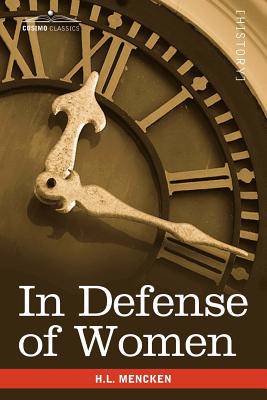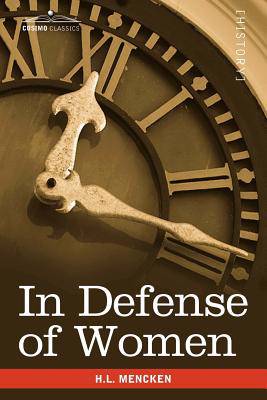
- Afhalen na 1 uur in een winkel met voorraad
- Gratis thuislevering in België vanaf € 30
- Ruim aanbod met 7 miljoen producten
- Afhalen na 1 uur in een winkel met voorraad
- Gratis thuislevering in België vanaf € 30
- Ruim aanbod met 7 miljoen producten
Zoeken
Omschrijving
He was one of the most influential American writers of the 20th century, but like most men of his time, he was never more clueless about women than when he believed himself most enlightened about them. American satirist and cultural critic HENRY LOUIS MENCKEN (1880-1956) "clarified" his many contradictory ideas about women-espoused over a long career as a journalist-in this controversial 1918 treatise on the relationship between the genders that even some contemporary critics saw as misogynist. Today, we may generously deem Mencken's ideas on women ironic, but an honest 21st-century reading will find them demeaning, if entertainingly so. This very modern man declares women more intelligent but less civilized than men, and pretends to insult men as a way to elevate women, which does nothing but place women in the very spot today's feminists rankle to be in: on a pedestal. In the end, Mencken reveals his preferred woman: intelligent enough to amuse him, but not so intelligent that she's frustrated by being reduced to such an undignified role. From the supposed end of marriage to "woman suffrage" (the author was not a fan), this is a work that is both essential reading for anyone wishing to understand the mind of Mencken and an important supplementary text of feminist history...if only as a demonstration of a contrary position.
Specificaties
Betrokkenen
- Auteur(s):
- Uitgeverij:
Inhoud
- Aantal bladzijden:
- 228
- Taal:
- Engels
Eigenschappen
- Productcode (EAN):
- 9781605206103
- Verschijningsdatum:
- 1/07/2009
- Uitvoering:
- Paperback
- Formaat:
- Trade paperback (VS)
- Afmetingen:
- 152 mm x 229 mm
- Gewicht:
- 340 g

Alleen bij Standaard Boekhandel
+ 48 punten op je klantenkaart van Standaard Boekhandel
Beoordelingen
We publiceren alleen reviews die voldoen aan de voorwaarden voor reviews. Bekijk onze voorwaarden voor reviews.








